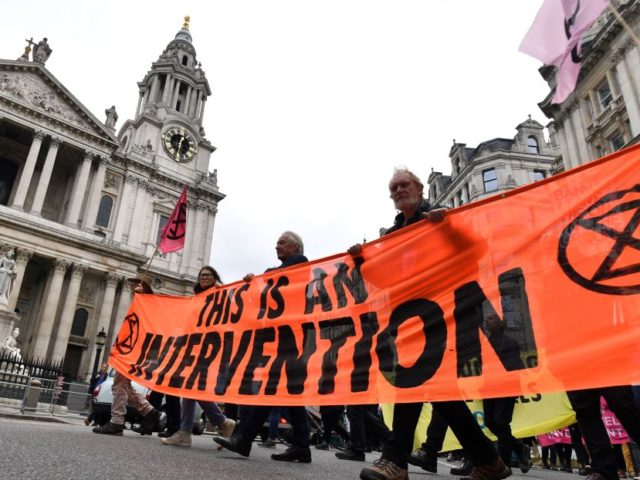If you haven’t yet had enough creeping authoritarianism, stolen freedoms and encroaching One World Government tyranny, you are just going to LOVE Personal Carbon Allowances.
Personal Carbon Allowances (PCAs) may be just the thing we need for our new ‘sustainable’ future as we emerge from the COVID-19 crisis. Or so claims a paper published in Nature Sustainability.
A PCA is the 21st century equivalent of the ration cards that European households had to carry during the Second World War to make sure they didn’t consume more than their ‘fair’, state-allocated share of food, clothing and so on.
The paper explains that a PCA ‘mitigation policy’, first mooted in the 1990s, is ‘ripe for revisitation.’
This policy aims to link personal action with global carbon reduction goals. A PCA scheme would entail all adults receiving an equal, tradable carbon allowance that reduces over time in line with national targets. In its original design, the allowance could cover around 40% of energy-related carbon emissions in high-income countries, encompassing individuals’ carbon emissions relating to travel, space heating, water heating and electricity.
So far, so dreadful: as if it wasn’t bad enough that nearly one half of your daily consumption will be subject to rationing, the paper breezily says that your allowance will ‘reduce over time.’ In other words, the thin gruel that the state allows you at first will become ever more meagre. What’s more, the range of items on the rationing list will get bigger and bigger.
New, more ambitious PCA proposals include economy-wide emissions, encompassing food, services and consumption-related carbon emissions, for example.
But why, you might wonder, in such rationing necessary in the 21st century when we are not at war?
According to the paper, PCAs ‘could play a role in achieving ambitious climate mitigation targets’ and ‘could be trialled in selected climate-conscious technologically advanced countries.’
Yes, no doubt they could. But the need for such unparalleled intrusion by the state into the lives of citizens in the free West rests on several heroic and unexamined assumptions: first that there is a climate crisis; second that unilateral action by ‘climate-conscious technologically advanced countries’ will make any difference if larger scale emitters like China and India continue to grow their energy economies; third, that this proposal has been submitted to cost-benefit analysis and found superior to other, less intrusive and authoritarian options like allowing economies to get richer and using the extra money to deal with any climate problems that might arise in the future.
None of these subtle distinctions is properly addressed in the paper. That’s because it is the product of exactly the same mentality which gave us the World Economic Forum’s infamous ‘You’ll own nothing and you’ll be happy” video.
These people care nothing for your freedoms as an individual. They are collectivists who see your autonomy and your liberty as barriers that get in the way of the greater good.
Perhaps the most frightening aspect of the report is the chillingly dispassionate language in passages like this one:
…at the time of consideration in the United Kingdom, PCAs were considered a radical approach for mitigation. This is still true: PCAs have been described as radical in more recent literature. There are clear political risks in advocating for challenging or radical policies, particularly if they have never been implemented elsewhere and there is no previous policy experience to learn from. Aside from the United Kingdom’s early interest, no European country has expressed clear political interest in examining, let alone adopting, PCAs.
Note that the authors won’t even concede that this rationing proposal is ‘radical’: merely that PCAs have been ‘described as radical’. The implication is that removing long-established consumer freedoms may or may not be a controversial thing to do, its ‘radical’ nature being a moot issue which depends entirely on the perspective of the beholder.
‘No European country has expressed clear political interest in examining, let alone adopting, PCAs’. Given the taste for rampant authoritarianism they have acquired in the last 18 months, however, this may not be the case for much longer. That’s how these academic reports work: they seed the idea in dispassionate language, giving the concept they are floating a veneer of intellectual credibility. Next thing you know, the PCAs have become part of your daily life. You own less and less, you notice. And you’re really not very happy.

COMMENTS
Please let us know if you're having issues with commenting.